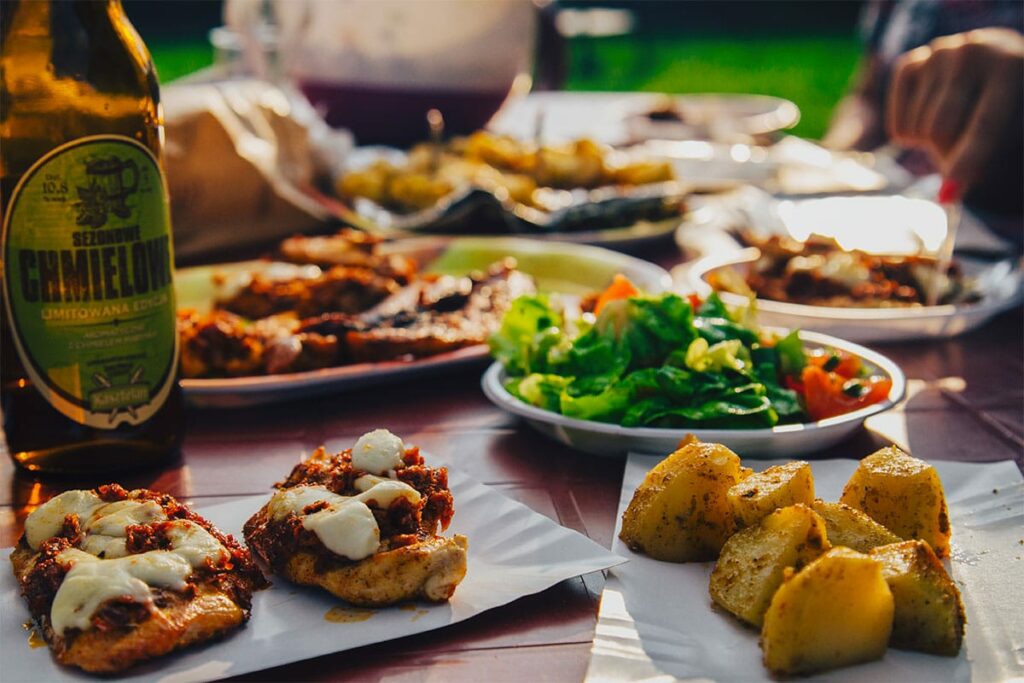What to Eat After a Work Out To Help Reduce Inflammation
Living a healthy lifestyle begins with diet and exercise. Knowing the ins and outs of how to effectively diet and exercise to achieve your goals is highly important, especially when your workout regimen is strenuous. Although some degree of inflammation is a normal response to the stresses associated with exercise, it is important to manage this to achieve the optimal benefits.
Inflammation is a process by which specific white blood cells protect us from infection. However, increased inflammation can also cause damage when the body responds as if normal tissues are infected or somehow abnormal. Symptoms include redness, swollen joint, joint pain or stiffness, and loss of joint function. You may also experience a fever, chills, and loss of energy, headaches, loss of appetite and muscle stiffness. This increase in inflammatory substances can eventually cause wearing down of the cartilage and cells themselves.
Effective diet and exercise are the primary ways to combat chronic inflammation. Be sure to track your training and give your body time to recover between workouts. If you keep stringing together spikes in inflammation without recovering from the previous effort, they start to overlap and can turn into chronic pain. Regular exercise, with proper recovery time, can actually help your body adapt enough to lower the level of inflammation in the body.
On top of proper recovery, nutritional support to help reduce inflammation is key. Post workout it is important to fuel your body with fast-digesting carbs and protein. Hard-boiled eggs, a protein shake, and even chocolate milk are great post workout sources of protein to rebuild muscle. Below is a list of anti-inflammatory foods and supplements that would also be helpful to incorporate into your diet:
- Tuna or Salmon – The Omega-3 fatty acid and fish oil can help with joint swelling.
- Probiotics – From supplements or fermented foods help build immunity and control infection caused by inflammation in the body by supplying the body with good gut bacteria.
- Broccoli – It is an excellent source of vitamins C and K, beta-carotene, and calcium giving it great anti-inflammatory properties.
- Pineapple – Packed with vitamin C and contains Bromelain. Bromelain helps break down proteins, aids in digestion, reduces swelling, and can even improve blood circulation
- Sweet Potato – Full of vitamins B6 and C, manganese, beta-carotene, and fiber. Working together, these nutrients are powerful antioxidants that help to heal inflammation in the body.
- Ginger – Has been used for medicinal purposes and shares many properties with NSAIDs (non-steroidal anti-inflammatory drugs), suppressing molecules called prostaglandins that cause inflammation with little to no side effects compared to NSAIDs.
- Turmeric – Contains curcumin, which blocks several inflammatory chemicals in the body. Like ginger it can also prevent production of prostaglandins, and is a great antioxidant.
- Extra Virgin Olive Oil – Helps fight inflammation in the body. Monounsaturated fats in olive oil are turned into anti-inflammatory agents that help lower risk of asthma and arthritis.
Knowing what foods can help reduce inflammation in your body might be exactly what you have been looking for to give your healthy lifestyle a boost. Fuel your body with the proper nutrients, and be sure to give it proper time for recovery and you will certainly be on track to being and feeling your best. At CERULEAN, we want to help support your healthy lifestyle. Cryotherapy and Cellular Repair Therapy are great options for helping your body recover! Contact us today to schedule.


